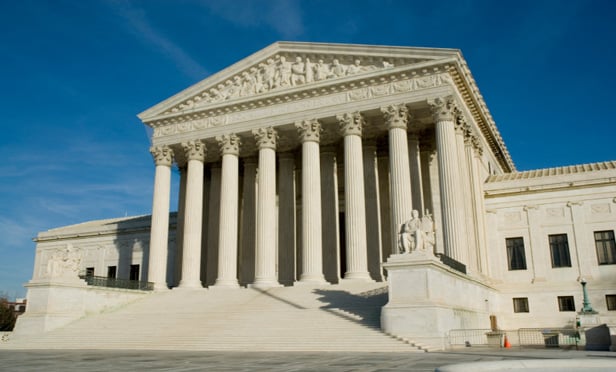Features

IP Considerations for ITC General Exclusion Orders
In recent years, the ITC has issued more General Exclusion Orders (GEOs) than in the past. For IP owners facing infringing imported products from numerous elusive sources, a GEO can be a powerful remedy to tackle all infringing products at once.
Features

Ticket Resellers' Campaign Raises Securities Law and Money Laundering Issues
Some markets allow for the sale of a future contract for tickets that have not gone on sale as yet (i.e., "speculative ticketing"). The future contract, like an option or a commodities future, allows someone to purchase the right to buy a ticket once the tickets are offered for sale. This seems to implicate securities law issues, broker-dealer regulations and potentially the general solicitation rule.
Features

Rule 10b-5 Liability: The Second Circuit and 'Rio Tinto'
Part Three of a Three-Part Article The first two installments exposited Janus Capital Group, Inc. v. First Derivative Traders and Lorenzo v. S.E.C., both essential to understanding S.E.C. v. Rio Tinto, the Second Circuit's most recent holding regarding Rule 10b-5 "scheme" liability. Now we examine how the "Mother Court" of federal securities law has tended to that branch of the mighty judicial oak rooted in that venerable regulation.
Features

Acquitted-Conduct Sentencing: A Quagmire Neither the Supreme Court Nor the U.S. Sentencing Commission Can Continue to Avoid
It has been common knowledge to criminal practitioners for years that a criminal defendant's sentence for a crime which they have been convicted can be increased based on consideration of conduct that the jury acquitted. This outcome can make a partial acquittal in federal court into a pyrrhic victory.
Features

Limitations on Omissions Liability for Opinions Following 'Omnicare'
"Everyone is entitled to his own opinion, but not his own facts." The Supreme Court has applied this maxim to the securities laws, holding in Omnicare v. Laborers District Council , that while statements of opinion generally are not actionable, there are some narrow circumstances in which such statements entail or imply false or misleading assertions of fact.
Features

Rule 10b-5 Liability: The Second Circuit and 'Lorenzo'
Part Two of a Three-Part Article This three-part series discusses the Second Circuit's recent Securities law landmark case, S.E.C. v. Rio Tinto. However, in order to discuss Rio Tinto, it is important to first understand the Supreme Court landmark cases upon which Rio Tinto is based: Janus Capital Group, Inc. v. First Derivative Trader, discussed in the first installment, and S.E.C v. Lorenzo, discussed here.
Features

Revision to the Definition of 'Waters of the United States'
In April of 2020, the EPA and the Department of the Army began the process of revising the definition of the term Waters of the United States (WOTUS). After the new administration took office in 2021, a new final rule was recently published. The changes are scheduled to take effect this year. The definition is significant for a multitude of land uses, as it places limitations on activities that may be conducted within and adjacent to such waters or, in some instances, requires the issuance of permits before certain activities may be conducted.
Features

Music Publishing and Recording Rates and Royalties 2023: Past, Present and Future
Part Two of a Two-Part Article In the United States and in most foreign countries, the "performance right" is one of the most important rights of copyright and, in many cases, the most lucrative. In the United States, there is no statutory license under the Copyright Act for this right. Songwriters, composers, lyricists (jointly "writers") and music publishers join these organizations, which in turn negotiate licenses with the users of music, collect the license fees from those users and distribute the monies to writers and publishers based on surveys of performances, specific payment schedules and distribution rules, as well as other factors.
Features

What's Happening With the Concerns Over How Event Tickets Are Sold Online?
The November 2022 tech meltdown of online access that slowed or barred consumers from buying tickets from Ticketmaster for Taylor Swift's Eras Tour, her first since 2018 and the largest one-day ticket demand Ticketmaster had ever faced, generated worldwide coverage and outrage from her fans. But the incident also resulted in a sizzling convergence of many of the issues that have plagued online sales of live events for years.
Features

New Definition of 'Waters of the United States'
In April of 2020 the EPA and the Department of the Army began the process of revising the definition of the term Waters of the United States (WOTUS). After the new administration took office in 2021, further study was conducted and a new final rule was recently published. The changes are scheduled to take effect this year, if currently pending challenges are unsuccessful.
Need Help?
- Prefer an IP authenticated environment? Request a transition or call 800-756-8993.
- Need other assistance? email Customer Service or call 1-877-256-2472.
MOST POPULAR STORIES
- The Article 8 Opt InThe Article 8 opt-in election adds an additional layer of complexity to the already labyrinthine rules governing perfection of security interests under the UCC. A lender that is unaware of the nuances created by the opt in (may find its security interest vulnerable to being primed by another party that has taken steps to perfect in a superior manner under the circumstances.Read More ›
- Warehouse Liability: Know Before You Stow!As consumers continue to shift purchasing and consumption habits in the aftermath of the pandemic, manufacturers are increasingly reliant on third-party logistics and warehousing to ensure their products timely reach the market.Read More ›
- Litigating Redesigns At the ITCAn overview of redesigns at the ITC, a discussion of the ITC's recent determination in Certain Audio Players and Controllers, and identifies some considerations to keep in mind when litigating redesigns at the ITC.Read More ›
- Applying Merger By Deed Doctrine to Real Estate TransactionsSince a deed is a subsequent writing between the parties, there is some logic to the terms of the deed taking precedence over the terms of the prior contract of sale, at least as to the subject matter of the deed.Read More ›
